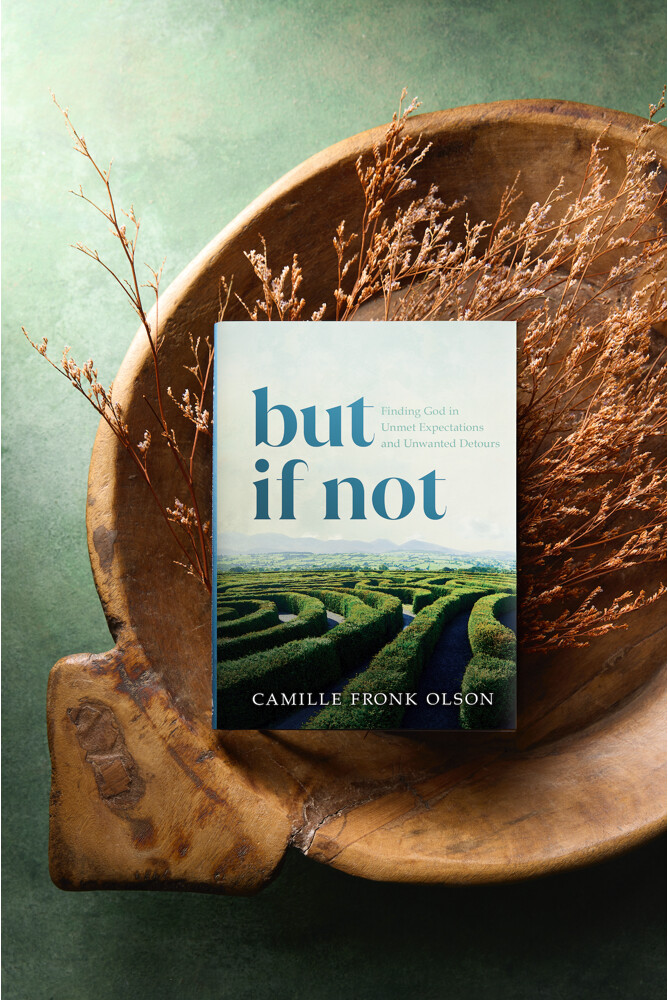Our mortal experience was created to allow and encourage learning by faith through unfairness, suffering, and opposition. From the beginning, God blessed Adam and Eve with circumstances that allowed them to experience natural consequences from various sources of opposition. That tutelage required leaving the Garden and entering a fallen world.
Remember that the only things God cursed in the Garden were the serpent and the ground. Neither Adam nor Eve was cursed. Far from cursing them, the Eden story cites God blessing both Adam and Eve with “sorrow.”
The Blessing of Sorrow
Sorrow in Hebrew,`itstsabown or ‘etseb (both forms from the root ‘tsbi1) does not suggest circumstances that simply make us sorry, but conditions that are challenging and require great toil, pain, and suffering to work through. Adam was told, “Cursed is the ground for thy sake; in sorrow [`itstsabown] shalt thou eat of it all the days of thy life” (Genesis 3:17; emphasis added; see also Moses 4:23).
Hard work is not a curse. It is the catalyst for learning many of life’s greatest lessons. God knew that working through uncertainties and hardships is essential to developing character and becoming more like Him.
J. Richard Clarke, then a member of the Presiding Bishopric, taught, “Work is honorable. It is good therapy for most problems. It is the antidote for worry. It is the equalizer for deficiency of native endowment. Work makes it possible for the average to approach genius. What we may lack in aptitude, we can make up for in performance.”2 Opportunities to develop a relationship with the Lord and His work were amplified by requiring Adam to work by the sweat of his brow to bring sustenance from the ground.
Parallel to what He declared to Adam, God told Eve, “I will greatly multiply thy sorrow [`itstsabown] and thy conception; in sorrow [‘etseb] thou shalt bring forth children” (Genesis 3:16; Moses 4:22). It is easy to conflate Eve’s blessing here to refer only to childbearing, thereby suggesting that God is telling Woman that her pain and suffering would occur only in childbirth. A careful reading of the scripture and real-life experience should challenge that quick assumption.
I remember when the silliness of concluding that women’s only worries, difficulty, and pain would come from childbirth became apparent. I was a relatively new assistant professor at Brigham Young University and along with a colleague was interviewed for a small radio program. Among the questions asked us was one about Adam and Eve.
I don’t remember the particulars except that my colleague related the Hebrew meaning for “sorrow” and explained that men don’t experience the profound pain that women do in childbirth; however, while women’s suffering is more intense, it is short-lived (confined solely to childbirth), whereas men’s suffering is less intense but stretched out over a lifetime.
I was so taken aback by this assumption that I must have audibly guffawed. I remember saying something like, “You’re joking, aren’t you? If you ask any mother about pain and suffering, they will tell you that the giving-birth part was easy in comparison to the worries and pains she experienced while mothering her children and grandchildren in the decades afterwards.”
Since then, I’ve thought of another reason to question his conclusion. What about women who never bear children? Does that mean they go through mortality without any hardships that cause pain and heartache? Of course not.
Ever since that day, I have read this passage as God telling Eve that He would teach her through “sorrow” in two ways. The verse uses the Hebrew word translated “sorrow” twice for Eve, the first in a general context and the second in the context of childbearing. “I will greatly multiply thy sorrow and ... in sorrow thou shalt bring forth children.” She therefore experiences sorrow in two circumstances: “I will greatly multiply thy pain and suffering in life generally, and I will also give you hardship in childbirth.”
Author Melinda Wheelwright Brown beautifully summarized the blessing of learning through times of sorrow. “Eve and Adam have each had the consequences of their choices realistically described to them; each has been similarly instructed and similarly endowed regarding the challenges that await them. ... These distinct blessings ... are for our sake and for our good, providing us with the very struggles that will ultimately refine and transform us.”3 From the moment Adam and Eve left the Garden, they and their posterity would begin to experience the consequences of opposition in all things.
Opposition in All Things
No one is exempt from these opposing forces, not even Jesus during His mortality. “[He] learned ... obedience by the things which he suffered” (Hebrews 5:8). Moreover, each of us chose to come to fallen Earth, recognizing that we would face hardships to know joy and fulfillment.
Elder Dieter F. Uchtdorf explained, “Life is not an endless sequence of emotional highs. ... And if God Himself weeps, as the scriptures affirm He does, then of course you and I will weep as well. Feeling sad is not a sign of failure. In this life, at least, joy and sorrow are inseparable companions.”4
Nearly every six months at general conference, at least one of our leaders reminds us of the value of opposition in all things. In 2020, President Jeffrey R. Holland drew on something Elder Neal A. Maxwell said 20 years earlier when he stressed that: “One’s life ... cannot be both faith-filled and stress-free.” It simply will not work to “glide naively through life,” saying as we sip another glass of lemonade, “Lord, give me all thy choicest virtues, but be certain not to give me grief, nor sorrow, nor pain, nor opposition. Please do not let anyone dislike me or betray me, and above all, do not ever let me feel forsaken by Thee or those I love. In fact, Lord, be careful to keep me from all the experiences that made Thee divine. And then, when the rough sledding by everyone else is over, please let me come and dwell with Thee, where I can boast about how similar our strengths and our characters are as I float along on my cloud of comfortable Christianity.”5
The entire chapter of 2 Nephi 2 records Lehi’s inspired teaching to his son about the need for opposing forces in God’s plan of happiness. What is choosing righteousness without the real temptation to resist and rebel against God?
Setbacks, mistakes, stumbling, falling, failures, or whatever you want to call them are part of God’s plan of redemption for us in mortality. Through them all, we can learn to turn to the Lord, trust Him, and serve Him. God gave us “weakness that [we] may be humble” and if we will learn humility and faith before God, He has promised, “I will make weak things become strong unto [you]” (Ether 12:27).
Editor’s note: This article is an excerpt from Camille Fronk Olson’s new book, But If Not: Finding God in Unmet Expectations and Unwanted Detours.
Finding our way through unmet expectations
Available at Deseret Book, deseretbook.com, and via Bookshelf+.
More articles for you:
▶ 4 journaling ideas to help you grow spiritually
▶ This perspective on physical suffering is a must-read for anyone in pain
▶ 3 words to remember when you can’t seem to feel God’s love
Notes:
1. See “`itstsabown,” Strong’s Concordance of the Bible: 6089, 6093, biblestudytools.com/lexicons/hebrew/nas/itstsabown.html.
2. J. Richard Clarke, “The Value of Work,” Ensign, May 1982.
3. Melinda Wheelwright Brown, Eve and Adam: Discovering the Beautiful Balance (Deseret Book, 2020), 111.
4. Dieter F. Uchtdorf, “A Higher Joy,” Liahona, May 2024.
5. Modification of Neal A. Maxwell, “Lest Ye Be Wearied and Faint in Your Minds,” Ensign, May 1991, as seen in Jeffrey R. Holland, “Waiting on the Lord,” Liahona, November 2020.



